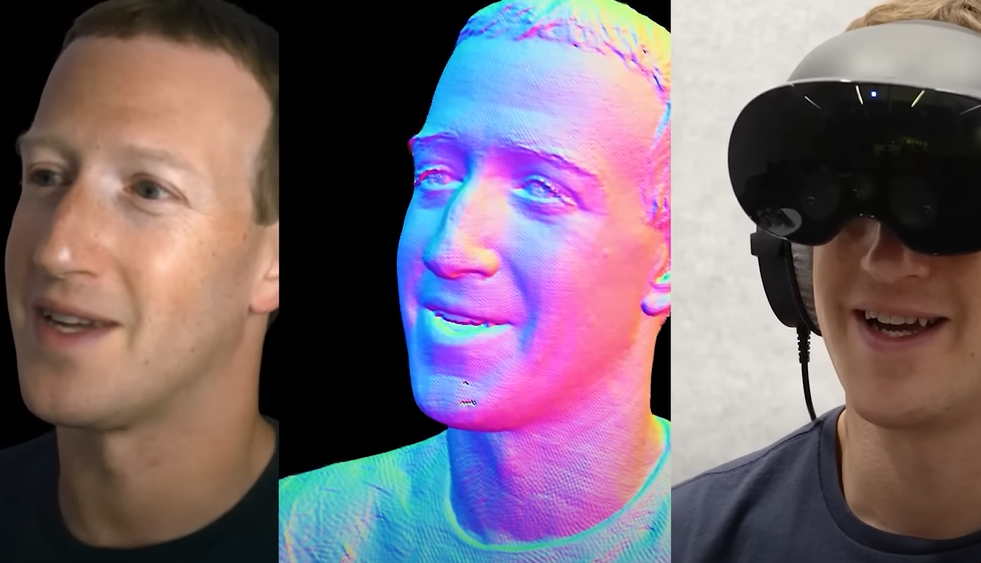Mark Zuckerberg recently connected with Russian-American computer scientist and renowned podcaster Lex Fridman to record a podcast episode within the metaverse — all while donning VR headsets.
While being physically miles apart, Zuckerberg and Fridman virtually engaged in a conversation that touched upon various topics — ranging from the challenges faced in realizing the full potential of VR devices to the aesthetics and future prospects of avatars.
Zuckerbeg and Friedman met in the metaverse as Kodak Avatars in 3D — a cutting-edge technology that enhances the realism of avatars. Unlike traditional avatars, which often appear cartoonish and lack lifelike features, Kodak Avatars in 3D are designed to capture and replicate a person’s face in intricate detail. This technology transforms avatars by incorporating realistic eyes, facial expressions, hairstyles, and overall appearances.
During the podcast, Zuckerberg explained that the integration of this new technology into the Meta VR headset allows for a remarkable level of realism. When wearing the headset, it captures the user’s face and expressions, sending an encoded version of their likeness over the network.
Meta’s mission, as mentioned by Zuckerberg during the podcast, is to replicate facial expressions and make avatars as true-to-life as possible, all within a remarkably short span of time.
To that aim, Zuckerberg revealed that Meta is actively developing a system that enables users to scan their faces using a smartphone. This process involves simply waving the phone in front of their face for a few minutes, uttering a few sentences, and making various facial expressions. The result is a high-quality avatar that closely resembles the user’s appearance.
During the discussion, Zuckerberg also touched upon the recently released Meta Quest 3 VR headset, currently priced at $500. He highlighted how the affordability of this device is poised to make VR more accessible to a broader audience, further encouraging the developer community to innovate and experiment within the metaverse.
Additionally, Zuckerberg shared insights into Meta’s foray into AI chatbots, emphasizing the company’s vision for a future where users have access to a variety of AI chatbots tailored to their specific needs and preferences.
Regarding what lies ahead, Zuckerberg pointed out several potential challenges that may arise as the metaverse becomes more widely embraced. These challenges include concerns related to anonymity, which might inadvertently foster undesirable behaviors, as well as issues concerning privacy. Additionally, he acknowledged the psychological effects that could surface, such as the possibility of individuals revisiting memories of interactions within the metaverse, potentially including moments of grief and loss.
Nevertheless, Zuckerberg’s vision is clear — the metaverse holds immense potential to usher in a new era characterized by interconnectedness, boundless creativity, and profound human expression.


